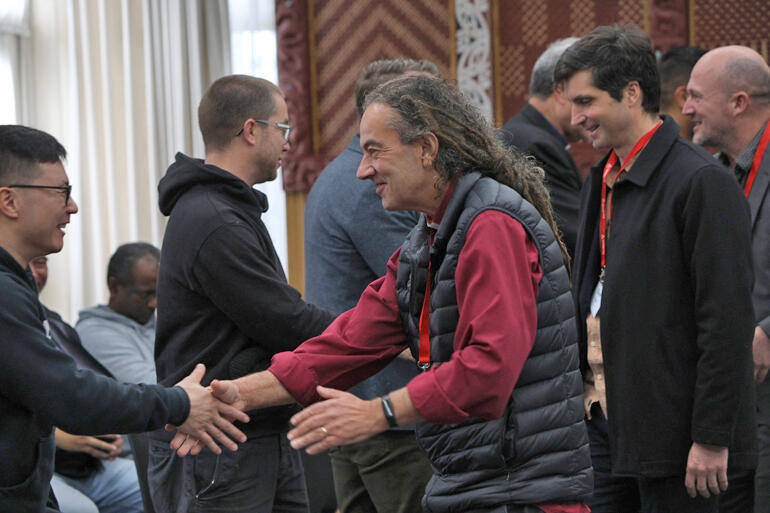
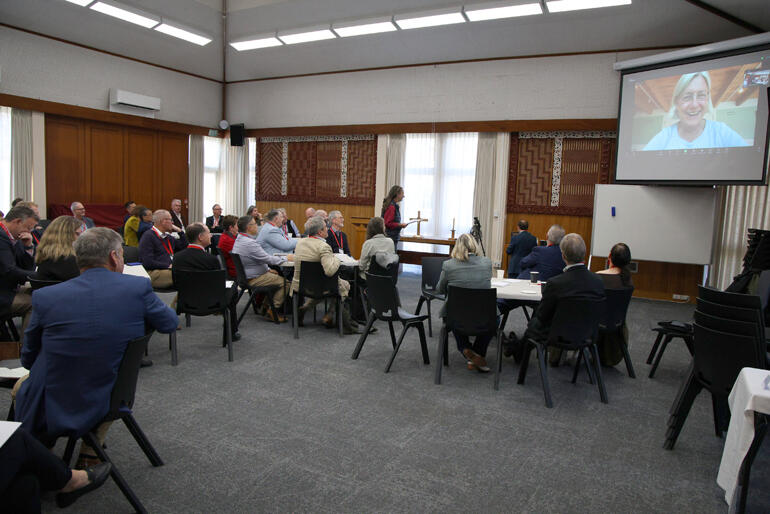
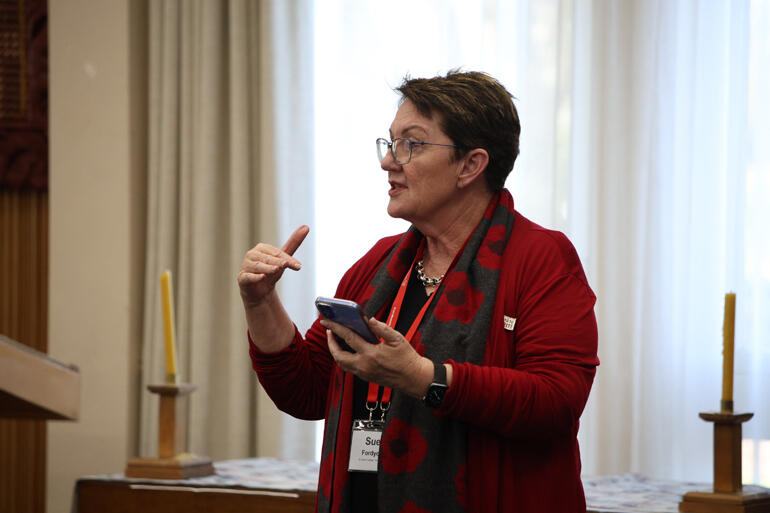
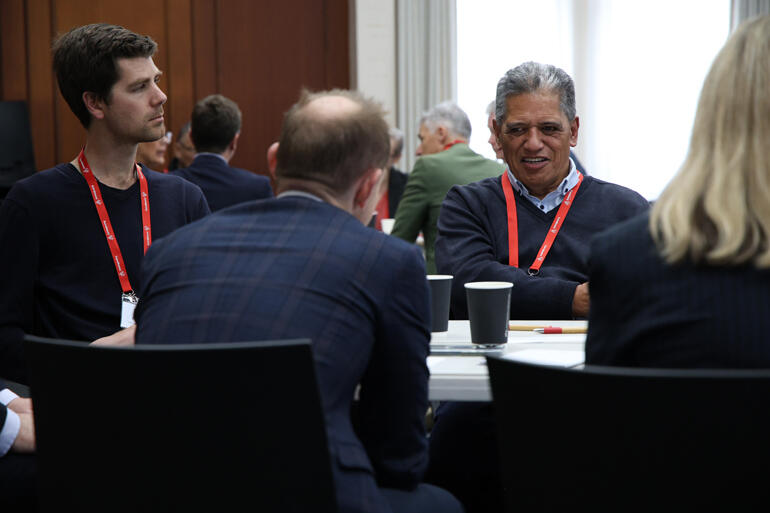
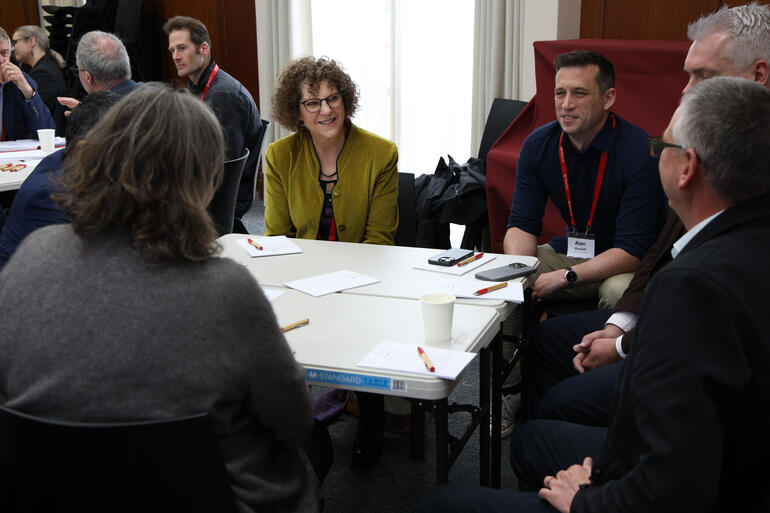
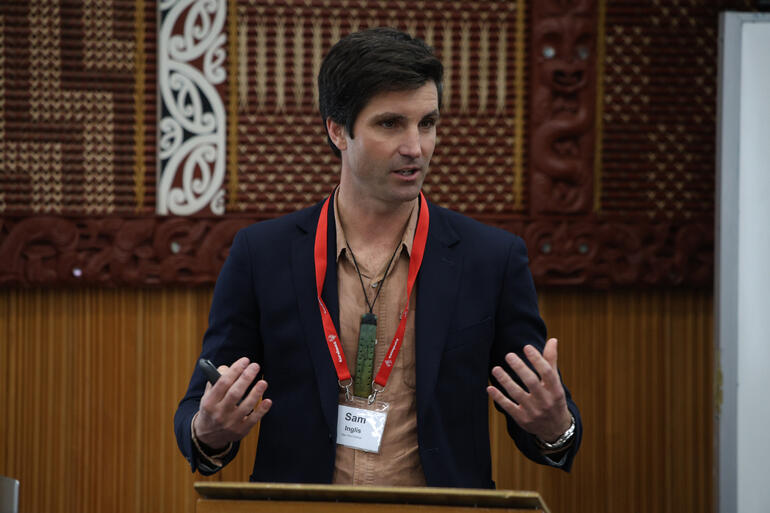
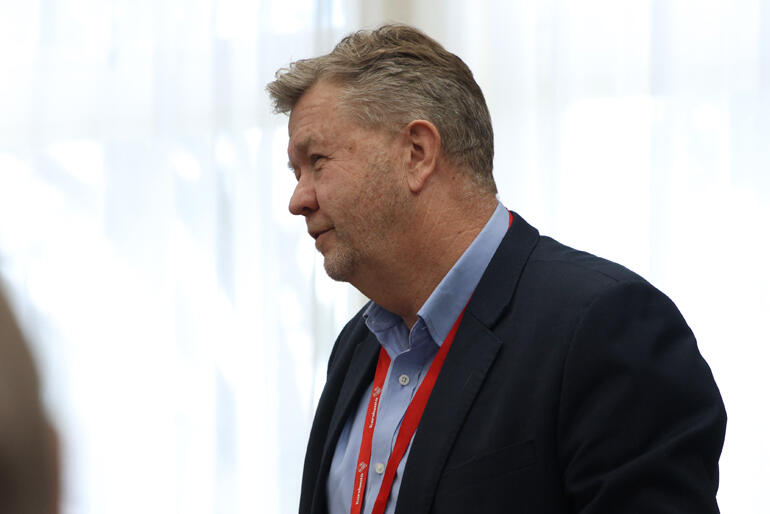
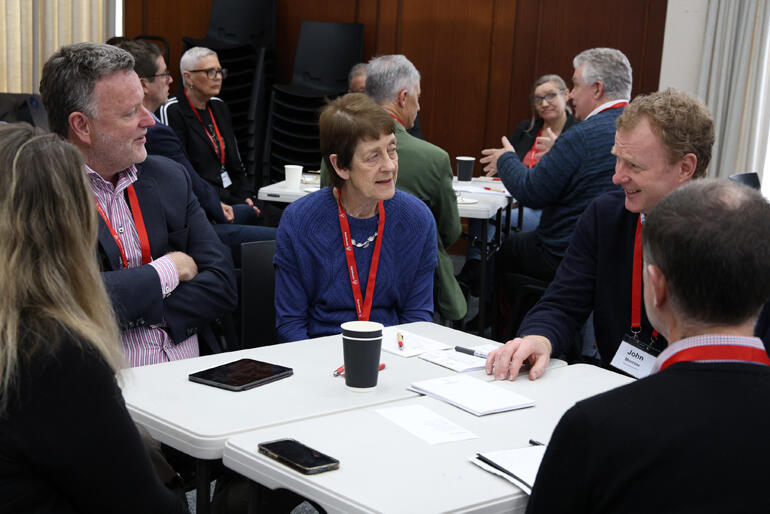
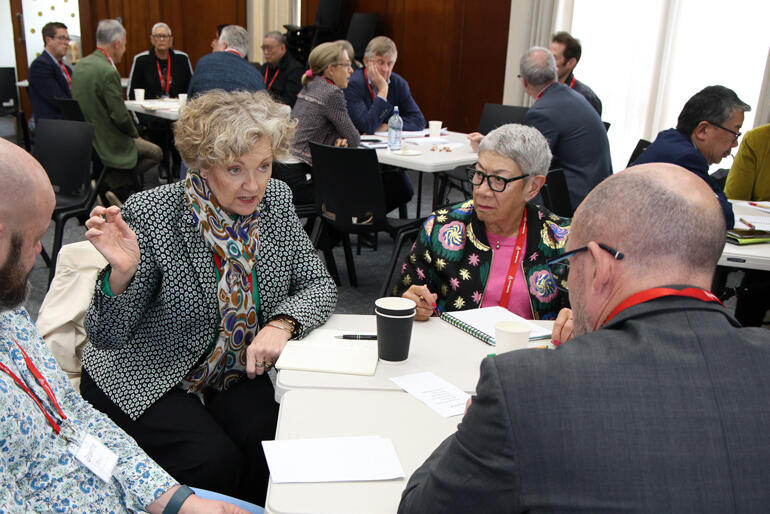
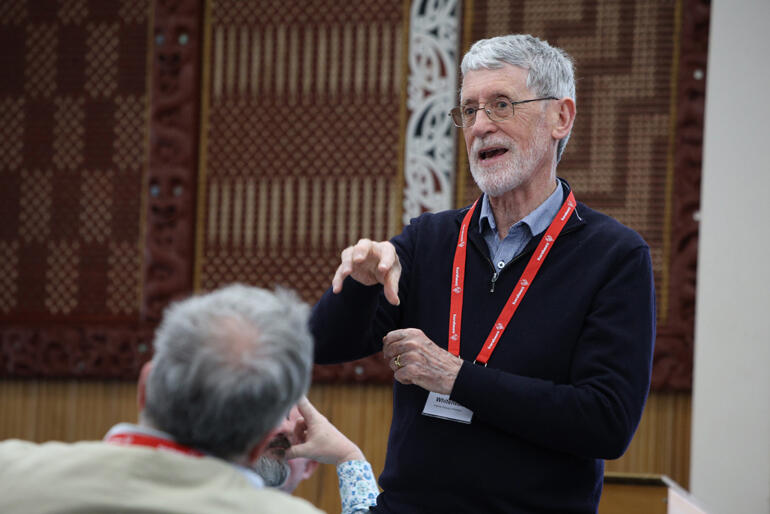
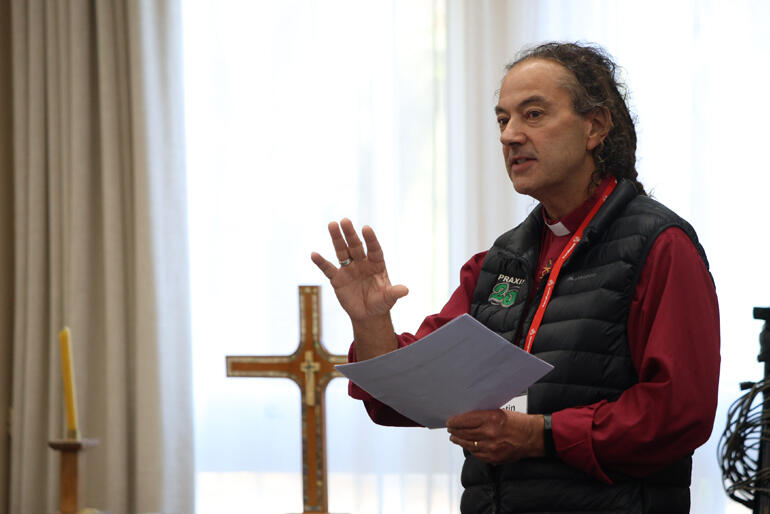
Anglican trustees and financial managers from across the Anglican Church in Aotearoa, New Zealand and Polynesia (and linked organisations) have met for a summit at St John's College in Meadowbank to compare insights and strategies in the complex and shifting field of ethical and impact investing.
Archbishop Justin Duckworth opened with a reflection on Jesus' 'miracle of the free lunch for fifteen thousand', shared from one child's gift of loaves and fishes. He proposed that ethical investing is not about the quantity Christians opt to invest in mission impact, but the quality of steps they take in the right direction.
The first presenter was Barbara Ridpath, the Church of England's Ethical Investment Advisory Group (EIAG) Chair, who agreed with Archbishop Justin's opening gambit.
"As Christians how we use our money is both an outworking of our beliefs and an act of witness," she said.
"I challenge you to be prophetic...It's not the amount of funds you're wielding as much as the authority with which you speak, and the importance of the issue to you, that will drive where success comes from."
Barbara Ridpath outlined learning from EIAG's 31 years expertise in ethical investment research, which shapes their advice to three national Church of England investment bodies with holdings of £18 billion today.
Since 1994 the EIAG has adopted a wide range of approaches to ethical investing, from excluding 'sin stocks', to ESG-informed investment, active shareholder advocacy and direct environmental and social impact investing.
Barbara challenged Anglican investment teams in Aotearoa New Zealand and Polynesia to take local and regional knowledge as their standpoints for stakeholder advocacy.
"I have reason to believe that all of you have an existential reason to be concerned about sea level rise, undersea mining and plastics pollution...for example... and your expertise on the Pacific environment may encourage leadership there."
Barbara laid out the complex dialogue between fiduciary duties and mission alignment, and reminded investment teams to heed her predecessor Tony Hardy's words, that "the wages of virtue are better than the wages of sin."
Barbara Ridpath encouraged Anglican investment teams to seek existing resources from the worldwide church, including on the Church of England website, the World Council of Churches' Responsible Banking Guide and the Roman Catholic Church's Mensuram Bonam.
Ainsley McLaren from the Melanesian Mission Trust Board enjoyed the opportunity to look at ethical investment strategies together.
"It's about getting focused on the 'Why?' So whether you are being challenged by a situation or you are going swimmingly, there needs to be that coming back to the question, 'How is this serving our 'Why?'"
Next up was Sam Inglis CEO of Ngai Tahu Holdings, which since 1998 has seen the iwi's 170 million settlement grow to 2 billion today.
Sam described how the iwi's investment strategy is based on matching with its priorities and values that shake down to "We are Ngai Tahu." These are placed alongside the fiduciary duty to provide a return, which since 1998 has enabled Ngai Tahu's asset managers to distribute $1billion to iwi.
Sam showed how values like increasing the iwi's visible Te Waipounamu presence, raising land hectarage, uplifting mana and brand and creating employment for Ngai Tahu iwi members sat on an investment analysis dashboard alongside asset class categories and financial measures. That meant that dials for categories like footprint on the whenua and social outcomes needed to be balanced alongside dials measuring forecast total return, cash flow, liquidity, investment diversity and risk levels.
Following each presentation, summit participants shared their analysis and experience at tables with many relishing the chance to gather with peers across the sector and compare insights.
General Manager of Investments at Trust Investment Management Matthew Goldsack said the event was a valuable occasion to bring Anglican-linked investment teams together.
"There's an opportunity here, and a challenge: to work together, to collaborate and utilise the collective abilities and resources in the room for the benefit of the Anglican community – because collectively we can have a massive impact."
Selwyn Foundation Board Chair David Cunliffe and Chief Executive Denise Cosgrove rounded off the day's presentations with the story of The Selwyn Foundation's radical pivot that saw the Board sell 50% of its rest home assets.
That decision came at the end of a comprehensive systems analysis looking at assets and their impact on the Foundation's financial, social and mission returns. David described how releasing 6 of their 8 retirement home holdings had freed the Board to invest more closely in meeting their founding purpose of caring for the most vulnerable older people in the Tamaki Makaurau and Northland regions.
One key project now enabled by the Foundation's asset shift is a partnership with Ngāti Whatua Orakei that will deliver 'brain centres' hosted by marae, that will provide tikanga-led care for kaumātua with matewareware (dementia).
Rev Jimmy Luey from the Diocese of Wellington appreciated the breadth of discussion at the summit,
"I think the combination of theological foundations with sharing of ideas and examples of ethical investing has been very fruitful." he said.
Kaihautu of Anglican Care Waiapu Rawhia Te Hau Grant said the summit was a good chance to meet people in the field and see how diverse they were.
"My question is how can we use our collective voice to have more influence, speak up and do some of that advocacy work? How can we amplify our voice together?"
The Anglican Ethical Investment Summit was called by the Archbishops of the Anglican Church in Aotearoa New Zealand and Polynesia and supported by Kurahautū- The Archbishops' Wayfinder Unit with research and planning from Rev Peter Bargh.

















Comments
Log in or create a user account to comment.